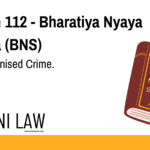Core Issue
The Supreme Court has ruled that viewing, storing, downloading, or sharing child sexual abuse material (CSEAM), even in private, is a criminal offence under the Protection of Children from Sexual Offences (POCSO) Act and the Information Technology (IT) Act. The Court emphasized that such content fuels child exploitation and prolongs the trauma of victims, making strict legal action necessary.
This landmark decision came in response to a High Court ruling that stated mere possession of child sexual abuse content was not punishable under POCSO. The Supreme Court rejected this interpretation, stating that the act of viewing or storing such material without deleting it amounts to a criminal intent to possess and possibly distribute it.
Key Legal Observations
The Supreme Court made significant observations about the seriousness of CSEAM and the need for legal reforms:
- Possession without deletion = Criminal Intent: Keeping such material without deleting it implies an intent to retain and possibly share it, making the individual liable under POCSO and IT laws.
- Constructive Possession Doctrine Applied: The Court ruled that any person who has the power to control, modify, or delete child sexual abuse material but fails to do so is equally guilty, even if they did not actively circulate it.
- No Legal Distinction Between Viewing and Possessing: The ruling emphasized that even private viewing of child sexual abuse material constitutes an offence, as it fuels child exploitation, trafficking, and abuse.
- Stronger Legal Terminology Required: The Court directed the government to replace the term “child pornography” with “Child Sexual Exploitative and Abuse Material” (CSEAM) in all legal documents, as the former term does not fully capture the severity of the crime.
Why This Ruling Matters
The judgment is a major step toward strengthening child protection laws in India. By criminalizing the possession, viewing, and distribution of CSEAM, the Court aims to:
–Prevent child exploitation by eliminating demand for such material.
– Close legal loopholes that allowed individuals to escape liability by claiming they only “viewed” and did not “share” content.
– Ensure strict enforcement of POCSO and IT laws to protect child victims from further harm.
Conclusion
This ruling sets an important precedent in India’s fight against child sexual exploitation. By holding even passive viewers accountable, the Supreme Court is sending a clear message—child abuse content is not just another digital crime; it is a direct attack on the dignity and safety of children. Stricter enforcement of laws and greater public awareness are crucial in tackling this issue.
With the government now expected to amend legal provisions accordingly, it remains to be seen how effectively these changes will be implemented on the ground. However, one thing is certain—this ruling marks a strong step toward a safer digital space for children in India.








